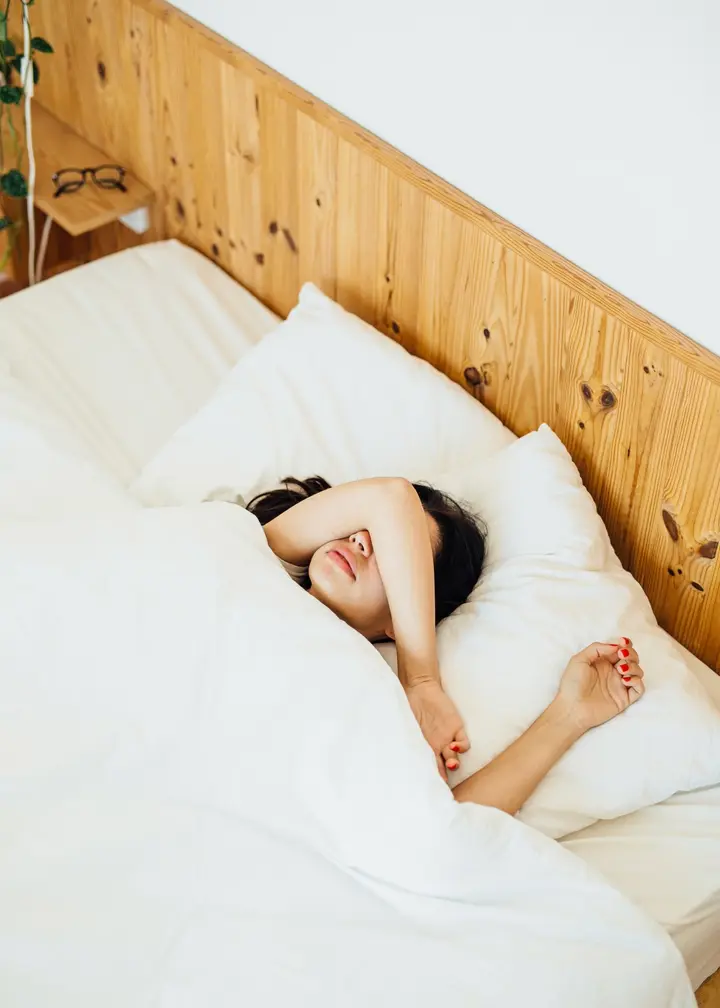
Can Sleeping On Your Back Give You a Face Lift?
We spoke to a dermatologist to find out if you can really sleep your way to smoother skin.
If internet trends are anything to go by, many of us are chasing smoother skin. Whether you’re following a 10-step K-beauty routine or leaning into the ‘glazed donut’ look, chugging celery juice or wearing a (frankly terrifying) LED mask on the reg, skincare sits central to many of our lives.
And while potions and lotions have come a long way since the soap-and-vaseline routines of our grandmothers, the humble beauty sleep might just be ready for a resurgence. As the cost of living rises, sleep can be a great (free!) tool to not only promote a healthy complexion, but also reduce stress and improve your mood.
According to award-winning dermatologist Dr Davin Lim, there are some simple sleep tricks that can maximise your beauty rest that don’t cost a cent. One such trick is sleeping on your back. While sleeping on your back won’t fix every crease and bump on your face, it’s proven to be effective in minimising blemishes, firming skin, and reducing the appearance of harsh lines.
And while there’s nothing wrong with the natural (beautiful!) signs of aging, we’re okay giving our skin a little support to look and feel our best. Here’s how sleeping on your back can improve your skin:
1. Lessens the appearance of acne
As we toss and turn throughout the night, our faces rub on our pillowcases, sheets, and duvets. This constant rubbing not only irritates our skin but “makes acne worse due to occlusion”, shares Dr Davin Lim.
In dermatology terms, occlusion is when the skin's pores become blocked, which is the last thing you want if you’re having trouble with acne and/or blemishes. “Ideally skin needs to breathe,” says Dr Lim, making back sleeping the optimal position for acne-prone people.
2. Reduces fine lines and wrinkles
When sleeping on your side or stomach, your face is pushed up against your mattress and pillows. If you sleep in the same position for the whole night – assuming you’re sleeping for eight hours – this can worsen the appearance of fine lines or wrinkles. “Sleeping on your back reduces sleep lines or compression lines on the face, especially the nasolabial lines, mid face lines & forehead lines,” shares Dr Lim.
3. Promotes collagen regeneration
What is collagen in dermatology, and why is it so important? Collagen is a protein that is made naturally in your body, and is one of the main building blocks for your bones, skin, hair, muscles, tendons, and ligaments. Collagen keeps our skin from sagging, which makes us appear more youthful. Dr Davin Lim notes “support of the head [when seeping] is important as it also improves oxygen levels, this helps with skin health, including collagen regeneration (via better oxygen levels).”
For more from Dr. Davin Lim, follow him @drdavinlim
This article is intended for informational purposes only and is not a substitute for individualised health advice. If you are concerned about your skin and/or sleep health, please speak to your GP, who will advise on the correct treatment plan.
Enjoyed This?
Discover more sleep health articles










